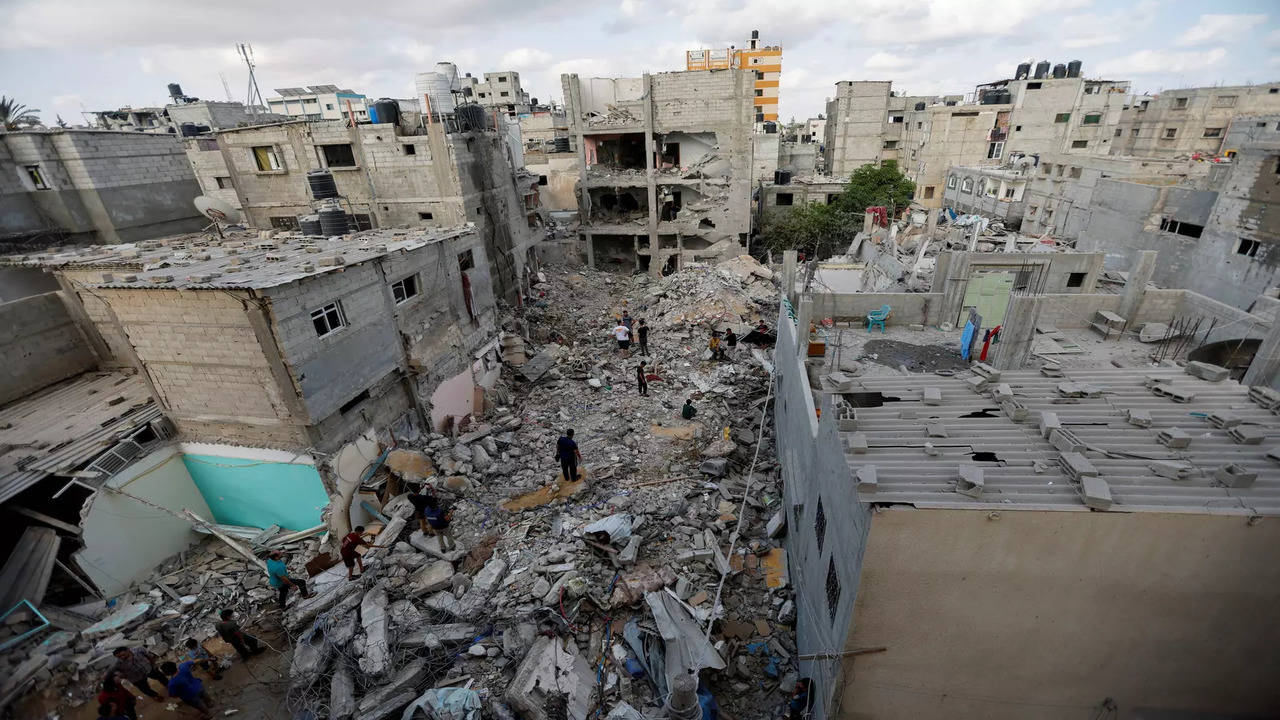The humanitarian entity also condemned the violence on the besieged city.
The Qatar Red Crescent (QRCS) launched a QAR 4 million campaign on Tuesday as part of an urgent relief response following a three-day Israeli bombardment on the Gaza Strip.
“Initial response involves distributing food parcels to 30,000 beneficiaries, supporting hospitals to serve 20,000 beneficiaries, rehabilitating water and sewage systems/facilities for the benefit of 10,000 persons and rebuilding damaged homes for 250 beneficiaries,” said QRCS.
The Qatari entity said the aid is expected to benefit 60,250 people in the besieged city, which was bombarded by Israeli attacks between Friday and Sunday.
The support comes in cooperation with QRCS’ office in Gaza as well as its international partners, including the International Federation of Red Cross and Red Crescent Societies (IFRC).
QRCS also condemned Israel’s “blatant aggression” against Palestinians, slamming it as a contradiction of “all international, ethical and religious instruments, conventions”.
“QRCS strongly condemns the heavy bombing of Gaza as a blatant aggression against peaceful civilians at their homes, which represents a flagrant violation of all principles of IHL [International Humanitarian Law] and human rights,” it said.
Within three days, the Zionist regime killed more than 40 Palestinians, including at least 15 children. The attacks were halted following a Qatar-Egypt brokered ceasefire before Monday midnight in Gaza’s timezone.
The latest strikes come as Gaza reels from the aftermath of last year’s Israeli bombardment of the city, in which at least 260 Palestinians, including 66 children, were killed. A Qatar-Egypt ceasefire also ended the assault at the time.
During the previous air raids, the QRCS office in Gaza was attacked, a move that many saw as an attempt to prevent the aid entity from helping Palestinians on the ground. Despite this, it continued to provide much-needed assistance during and after the attacks.
Qatar’s Amir Sheikh Tamim bin Hamad Al Thani allocated $500 million worth of aid to rebuild the city following the bombings.
Largest open-air prison
The Palestinian city became known as the world’s largest open-air prison due to the air, land and sea blockade imposed by Israel in 2007.
Israel blocked goods from entering the city during its latest aggression by closing the Karam Abu Salem crossing, which was reopened following the ceasefire agreement.
Israel already withholds fuel from the power plant and also controls up to 90% of water in the besieged enclave. Sources and figures show just 10.5% Palestinians in Gaza have access to safe drinking water.
The Israeli regime also controls up to 90% of water sources and figures show just 10.5% Palestinians in Gaza have access to safe drinking water.
More than 96% of water in Gaza’s aquifers are not safe for consumption, forcing Palestinians to buy water at inflated prices despite their full right to access it for free.
The poverty rate in Gaza has increased from 40% in 2005 to 56% in 2020.
Trucks carrying good to the strip constantly face obstacles under the apartheid state with key crossings being closed at unexpected times.
Before the embargo, at least 30,000 Palestinians were able to travel through the Erez crossing on a monthly basis, however, the number decreased by 85% as of 2020. This is also the case for the Rafah crossing with Egypt.







